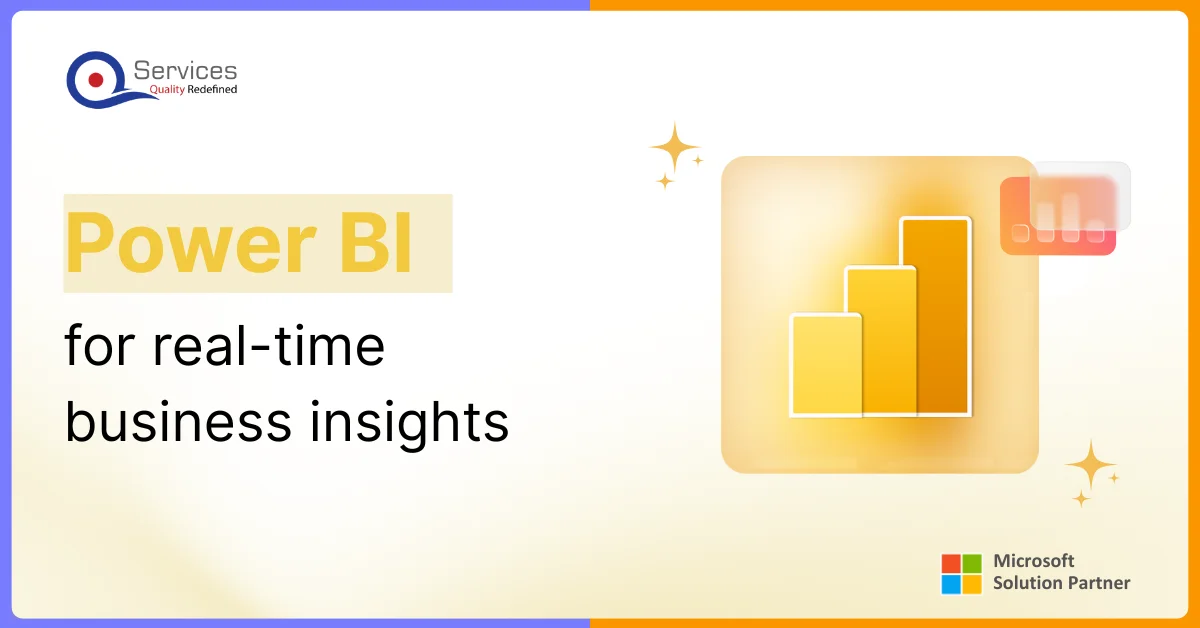
Home » Why Financial Process Automation is Essential for Modern Banking Institutions?

Banking processes that are old are no longer gold. With rising customer expectations and increasing pressure to deliver faster, error-free services, banks are increasingly transforming into modern financial institutions. And what’s driving this change? Financial process automation.
Automating financial services means no more delays, no messy data, and fewer inefficiencies. By replacing repetitive manual tasks with intelligent workflows, it allows banks to achieve real-time efficiency, precision, and scale.
To move towards future-ready banking, automation is not just good to have—it’s necessary. In this blog, we’ll explore why the banking automation industry is key to modern finance and why banks must act now to stay competitive and compliant.
Banking automation software enables financial institutions to replace manual task handling approaches with self-working, rule-based processes. Its primary purpose is to reduce errors and shorten turnaround times in key banking operations.
Here are a few areas where automation drives transformation:
How automation improves compliance
Automation applies regulatory rules automatically into banking workflows. It cross-checks transactions and customer data with compliance requirements and keeps records of all actions (verifying or making changes) without needing manual input.
How automation ensures data security
Automated systems control who can access data using set rules. They encrypt sensitive information and watch for unusual access patterns to prevent data breaches.
How automation enhances fraud detection
Automation monitors transactions in real time using smart, machine learning algorithms. It spots unusual behaviour and flags possible fraud quickly for further review.
How automation improves customer satisfaction
Automation speeds up customer requests by routing tasks quickly through systems. This helps banks approve loans, update accounts, and answer questions faster and more accurately.
Banks that use automation for their financial operations must understand the key components that work together to improve working efficiency, accuracy and compliance.
1. Process Mining: This is the first step that examines how banks currently operate and identifies areas that can be improved or automated.
2. Workflow Orchestration: Acting as a management layer, workflow orchestration ensures that automated processes follow the right sequence and execute smoothly across systems.
3. Robotic Process Automation (RPA): The role of RPA is to streamline banking operations that are often repetitive, and rule-based with independence.
4. Artificial Intelligence and Machine Learning: AI adds intelligence in banking by understanding data and making smart decisions, like spotting fraud or helping customers with questions.
Get free Consultation and let us know your project idea to turn into an amazing digital product.

Financial automation provides several benefits that result in both operational and customer-side advantages. Handling tasks in a smart, fast, and accurate way, brings transformative changes to banking operations.
Enhanced Operational Efficiency and Scalability: Automation streamlines repetitive, high-volume tasks; such as reconciliation, data entry, onboarding, and more. It allows institutions to handle increased workloads with ease.
Reduced Costs & Errors: With less human involvement and more computerized workflows, banks cut operational errors and also the costs needed to handle these workflows with employees.
Improved Regulatory Compliance: Automation ensures timely and accurate reporting, standardized audit trails, and consistent adherence to evolving regulations such as KYC, AML, and GDPR.
Data-Driven Insights and Decision-Making: AI-powered automated systems can collect, normalize, and process large datasets to support real-time analytics. Banks can enhance forecasting, credit assessments and more through this.
Strong Security and Fraud Prevention: Automated systems with AI and machine learning detect fraud in real time. They monitor anomalies continuously and apply predictive analytics to identify and mitigate risks before they escalate.
Integrating automation solutions in banking optimizes several key areas. Here are a few areas where these technologies bring significant impact.
Transformative Loan Processing Automation
Automation accelerates application reviews, credit scoring, and document verification. Banks using automated workflows reduce loan processing times by 50–60% and see a 40% improvement in approval accuracy.
Impact of automation on customer experience
Automation allows banks to deliver faster, more personalized services and can improve customer satisfaction scores by up to 20%. Features like AI-powered chatbots, instant account opening, and automated support tickets reduce wait times and improve accessibility.
Seamless Onboarding and KYC Compliance
Automated onboarding tools use eKYC, biometrics, and OCR (Optical Character Recognition) to complete customer verification in minutes. This reduces onboarding costs by up to 70% while maintaining compliance with AML and regulatory standards.
Efficient Fraud Detection and Risk Management
Automation enhances real-time fraud detection using machine learning algorithms that analyze transaction patterns and flag anomalies instantly. This reduces false positives by 30–40% and helps banks proactively prevent fraud, improving trust and minimizing financial loss.
Automation will continue to drive transformation in the banking sector. With more advancements coming, financial institutions can work more faster and accurately. Below are some automation trends expected to shape the future of banking:
1. Low-Code/No-Code Automation
Banks need faster development of solutions and low-code/no-code automation does exactly that. These next-gen platforms allow banks to develop and deploy automated solutions with minimal coding and less IT dependency.
2. AI-Powered Automation
Intelligent automation solutions are already transforming the finance sector and will continue to advance in the future with more enhanced fraud detection, customer personalization, and back-office efficiency.
3. Intelligent Document Processing (IDP)
IDP uses machine learning and OCR to capture, classify, and validate data from physical and digital documents. It significantly reduces manual processing time in KYC, onboarding, and compliance workflows.
4. Cloud-Based Automation Platforms
Cloud-native automation tools offer scalability, flexibility, and faster implementation. They support continuous deployment, secure data integration, and remote access, aligning with digital transformation and disaster recovery strategies.
5. Hyper automation
Banks are increasingly using hyper-automation to improve efficiency and reduce errors across multiple departments. It integrates RPA, ML, and analytics into a single framework and allows end-to-end automation of complex banking processes.
Share your project idea with us. Together, we’ll transform your vision into an exceptional digital product!

Rising customer demand for modernized financial services often confuses banks and pressures them to deliver faster. While legacy systems and poor strategies create barriers to meeting those requirements, financial process automation does it simply with speed and accuracy.
Banks using automation can optimize financial services, deliver better customer experiences, and stay compliant with evolving regulations. In a data-sensitive industry like finance, embracing automation is not just a technological add, it’s a path to modernization and a competitive edge in service delivery.
Processes like loan origination, invoice processing, reconciliation, KYC onboarding, accounts payable/receivable, and reporting benefit hugely from automation.
Banks often achieve 30–70% cost savings on manual processes by deploying RPA bots to streamline repetitive workflows.
STP is full transaction automation—payments and securities process electronically without manual intervention, enabling faster and more accurate operations.
OCR-powered systems extract, classify, and validate information from documents like KYC forms, dramatically cutting manual processing time.
RPA reduces tedious tasks—staff can focus on strategic work. Most initiatives redeploy workers instead of replacing them blindly.
Hyperautomation combines RPA, AI, machine learning, and analytics in one platform to automate complex, end-to-end banking processes across multiple departments.
Automated systems ensure consistent application of regulatory rules, maintain detailed audit trails, and provide real-time compliance monitoring for KYC, AML requirements.
Key metrics include processing time reduction, error rates, cost savings, customer satisfaction scores, compliance accuracy, and employee productivity improvements.
Absolutely—automation tools are scalable and cost-effective, helping small banks streamline tasks like onboarding, reconciliation, and reporting.
Properly configured RPA bots are highly reliable, work 24/7, reduce human error, and consistently execute standardized tasks.
Yes, automated systems use advanced encryption, access controls, and real-time monitoring to protect data. They often provide better security than manual processes.

Have a one on one discussion with our Expert Panel

This is one of the most common questions beginners ask when they start learning Microsoft Power BI. Many users install Power BI Desktop, hear about dashboards, then suddenly come across something called Power BI report builder and feel stuck.

In the past, business intelligence tools focused on collecting data and creating reports every month. That approach worked when things moved slowly. Now, businesses need to make decisions in seconds. Waiting for static reports can mean missing sales, reacting late to supply issues, or not spotting financial risks on time.

In 2026, it’s vital for every developer to be skilled in using the right set of Azure developer tools for cloud projects. Microsoft’s Azure cloud platform is at the center of this shift, providing a wide range of solutions for building and managing apps. With cloud development with Azure, teams can launch reliable apps that scale globally and respond to business needs in real time. Picking the right items from the Azure tools list can save time, money, and help you get better results.

Founder and CEO

Chief Sales Officer
